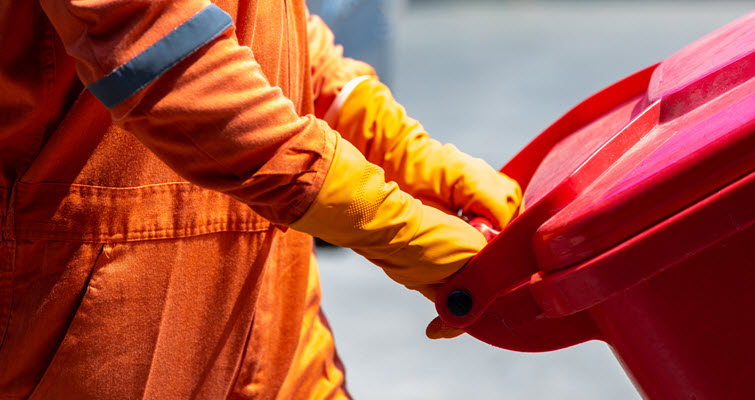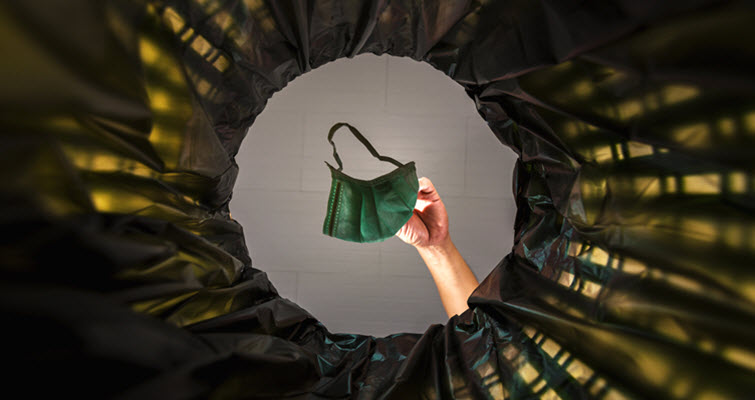Any garbage that contains infectious (or possibly contagious) materials is classified as biomedical or hospital waste. It may also be waste connected with the formation of biomedical waste that looks to be of medical or laboratory origin, containing biomolecules or organisms that are generally prohibited from being released into the environment.
Biomedical waste comes in liquid and solid forms. Discarded blood, sharps, unwanted microbiological cultures and stocks, identifiable body parts (including amputations), other human or animal tissue, used bandages and dressings, discarded gloves, other medical supplies that may have come into contact with blood and body fluids are all examples of infectious waste.
All of the aforementioned wastes, if not controlled or handled appropriately, can have a high level of pathogenic activity and cause major health problems such as respiratory sickness, viral, bacterial, fungal, parasitic infections, gastronomical disorders, and so on. Moving biomedical waste from the point of generation, accumulation sites, storage places, and on-site treatment facilities is referred to as handling. Workers who work with biological waste must follow conventional safety procedures.
What to Do While Handling Bio-Medical Waste
- Be proactive in your approach. Learn as much as you can about the wastes you might encounter and what to do if you come across them. Inquire with your supervisor about how medical wastes are handled at your facility, what to do if you come across a red bag or other biohazards, what personal protective equipment (PPE) to wear regularly and when dealing with a special hazard, and what to do if you get stuck with a hypodermic needle or are otherwise exposed to potentially infectious wastes.
- When you are in a situation where you might be exposed, put on PPE. Steel toes and puncture-resistant bottoms are recommended, and 6-inch lace-up boots provide additional ankle protection. When your hands may come into touch with risks, gloves should be worn. Leather provides superior puncture protection than rubber and latex. When the skin is exposed to infectious pathogens, the arms and other skin surfaces should be protected. Splash protection for the head and face is also possible with safety glasses and hard hats.
- When handling all wastes and cleaning all machinery and equipment, be mindful of the possibility of medical wastes and strive to avoid contact. Sharps, in particular, can become lodged in the wheels and tracks of vehicles, posing a risk to operators and maintenance employees.
- A spill can happen if splashing or splattering occurs or if some unexpected hazard arises. In these cases, special equipment such as respirators, face shields, boot covers, dust masks, or impenetrable clothing may be required. Medical waste should not be handled physically. Use a shovel or any other implement if you need to move these items, such as to separate them for pickup. While on duty, cover all cuts and abrasions.
- Even if your gloves have not been damaged or punctured, wash your hands after removing them. Before eating, drinking, or putting anything in your mouth, and before leaving work, always wash your hands thoroughly with soap and water for the designated amount of time.
BG’s Big Box Service to the Rescue
It makes a huge difference to have the correct garbage bin because it helps you to concentrate on your work. BG’s Big Box Service assists you at every step of the process, from determining the appropriate container size for your needs to arranging and delivering your container on the day you need it, as well as a hassle-free and convenient pick-up after the project is over. Since 1981, we have proudly rented over one million containers throughout the San Fernando Valley, Los Angeles, and Ventura Counties.

We make it our objective at BG’s Big Box Service to assist you in finding the correct garbage container for the job, no matter what it is. We have four container sizes to ensure that you only pay for what you need and do not waste money on unused or surplus space. They are a 3 Yarder (smallest container), Lowboy 20 Yarder, 10 Yarder, and Highboy 40 Yarder.
Please contact us if you have any additional questions or would like to learn more about rental pricing or arrange delivery for your next project. We are located at 8629 Bradley Avenue #A in Sun Valley, CA. You can also call us at 818-504-8116!



